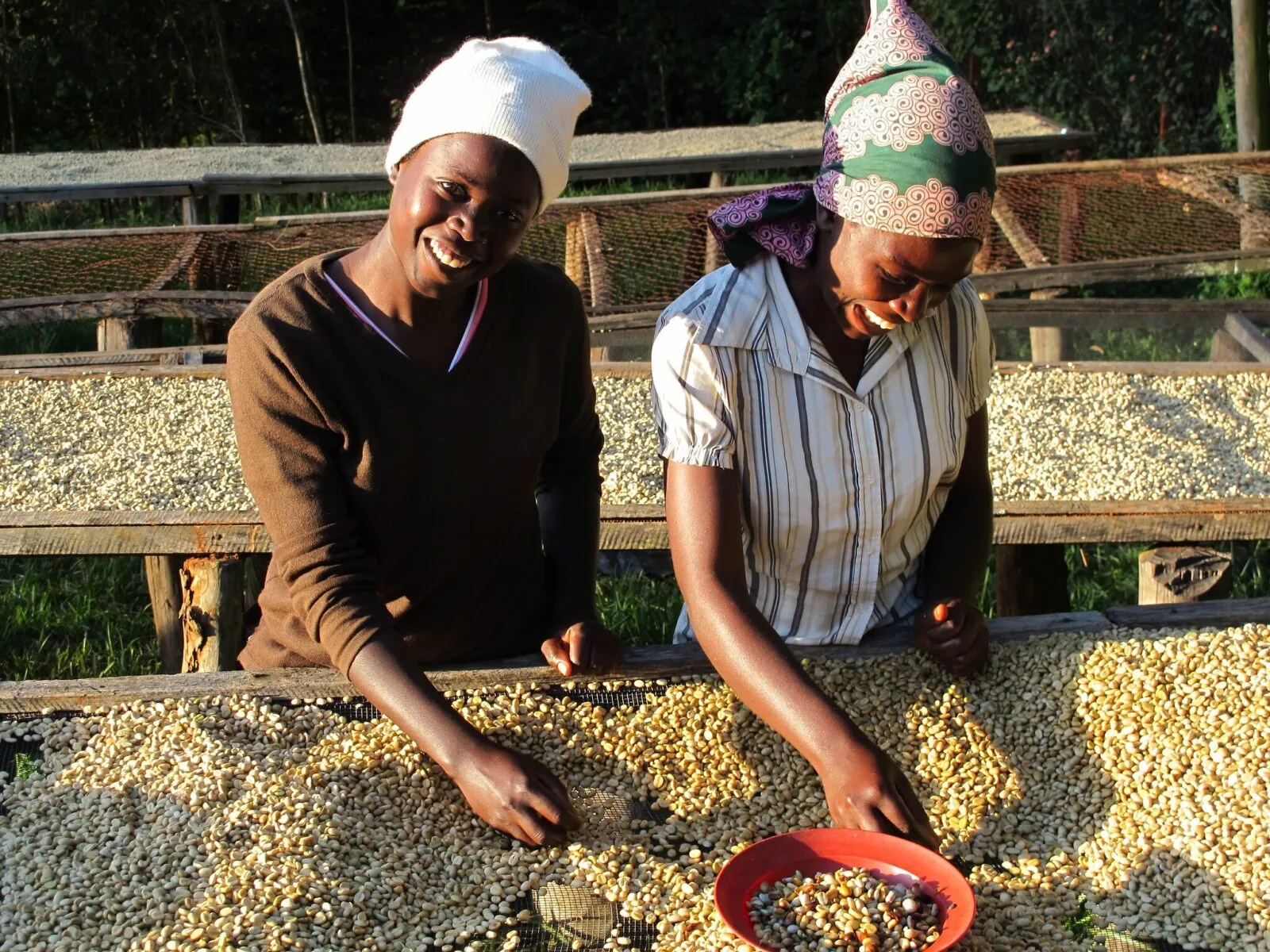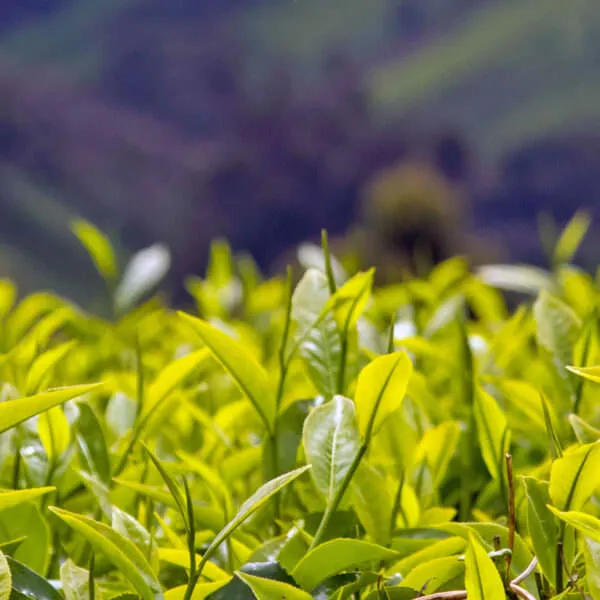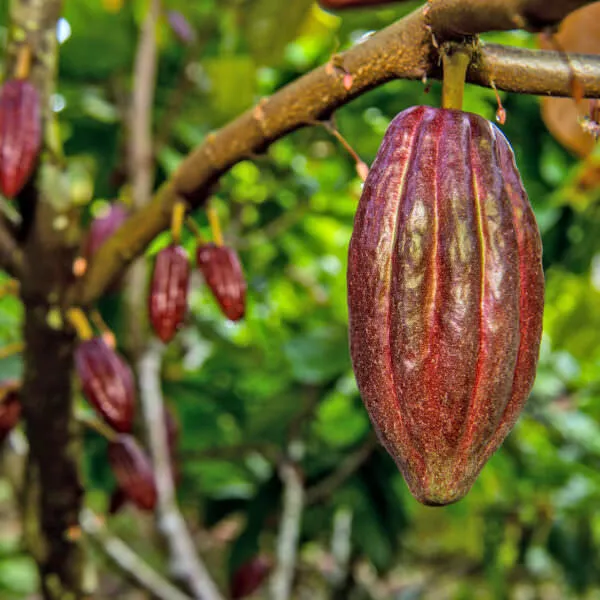Farmers around the world are up against daunting environmental and economic challenges, from droughts and floods to poor market prices. These issues often contribute to dangerous working and living conditions, as well as environmentally harmful practices.
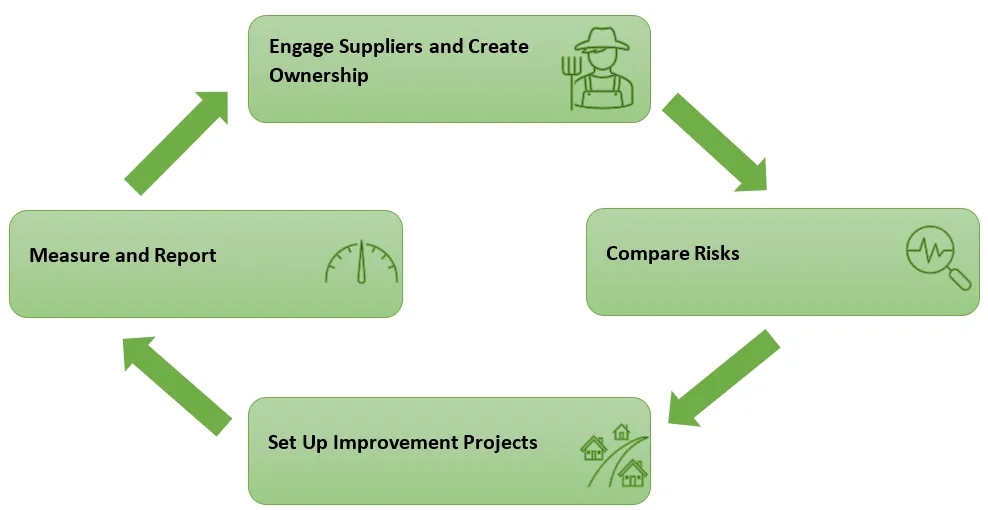
When addressing the numerous and complex challenges facing farmers, a one-size-fits all approach is rarely adequate. The Rainforest Alliance therefore uses a context-specific approach for identifying and remediating critical supply chain risks. Through a collaborative partnership, we can help your company achieve its sustainability goals. We will work with you to co-create a robust methodology to pinpoint risks and set up tailored interventions to mitigate them.
The Common Grounds program
As the world’s largest pure-play coffee and tea group by revenue, JDE Peet’s recognizes the opportunity and responsibility it has to make a difference in the lives of farmers and farming communities. In 2018, the group collaborated with the Rainforest Alliance to launch the Common Grounds partnership.
Common Grounds outlines two ambitious sustainability goals for JDE Peet’s. First, to source 100% of their coffee volume responsibly. Second, to reach 500,000 smallholder farmers (through investments in Improvement Projects and capacity building) by 2025. Despite being in its early stages, the Common Grounds partnership has already ensured:
- 26.9 percent of coffee sourced in 2020 was third-party certified/verified (up from 21 percent in 2019);
- 18 countries were home to active Common Grounds Improvement Projects in 2020; and
- 380,000 smallholders have been cumulatively reached from 2015 to 2020 (up 80,000 since 2019).
Through a combination of supplier engagement, risk assessment, and continuous monitoring and evaluation, the Rainforest Alliance and JDE Peet’s work to achieve these sustainability goals. Together, we identify where action is needed and how interventions are performing. Below, we detail our stepwise approach to identify and address key risks in sourcing regions.
Step 1: Establish commitments
Every sustainability journey first needs a roadmap. Thus, the Rainforest Alliance and JDE Peet’s first co-developed the strategic pillars of the Common Grounds Partnership. The pillars are sustainability of land, equality of people, and prosperity of farmers. They also developed an accompanying set of principles to assess JDE Peet’s progress towards its commitments. These principles align with Rainforest Alliance sourcing criteria and reflect our shared vision of sustainability.
Step 2: Engage suppliers and create ownership
To know what is occurring on the ground, the Rainforest Alliance engages with suppliers through Supplier Self-Assessment Forms (SAF). Every two years, the Rainforest Alliance distributes SAFs via SupplyShift. The questions in the SAFs help identify supplier alignment against JDE Peet’s Common Grounds principles, as well as what risks they perceive as the most prevalent in their sourcing regions. The SAFs are a key step to identify risks in sourcing regions. They are further contextualized by Origin Issue Assessments (OIAs).
Step 3: Compare risk results
OIAs provide an overview of major environmental and social issues—such as deforestation and child labor—in each country. We compile them by analyzing a country’s current laws, reviewing publicly available data, and consulting with internal and external experts. The issues flagged within the OIAs are weighted, thus allowing the Rainforest Alliance to determine which risks are most pressing. As of mid-2021, the Rainforest Alliance has provided JDE Peet’s with OIAs on nine countries. We are continuously updating the OIAs as country conditions change. Once the SAFs and OIAs are complete, risk mapping can begin.
During risk mapping, the Rainforest Alliance evaluates the responses given in the SAFs alongside the data reported in the OIAs. This process allows the Rainforest Alliance to identify areas where risks on environmental and social issues are the highest in countries and regions from which JDE Peet’s sources coffee. When we need further information, third-parties conduct targeted assessments. Through interviews and surveys with farmers, suppliers, and other stakeholders, targeted assessments provide insight into the complex challenges that contribute to identified risks.
Altogether, the detailed information obtained allows JDE Peet’s to better identify where risk is highest in the countries and regions that it sources from. This information is critical in guiding JDE Peet’s supplier investments and in the development of Improvement Projects with the greatest impacts.
Step 4: Set up Improvement Projects
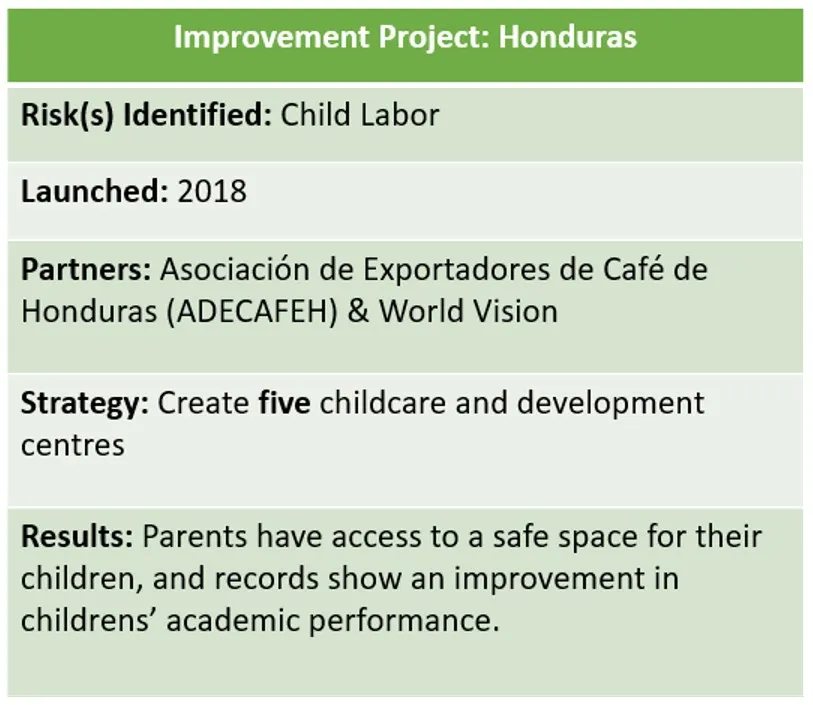
Improvement Projects are key to JDE Peet’s mission. They are region-specific and designed to address the risks identified through supplier engagement and risk analysis. Improvement Projects also cover a variety of topics, from building farmer financial literacy to enhancing on-farm climate resilience. Part of what makes these projects work is that they undergo a thorough risk assessment by multiple Rainforest Alliance experts and JDE Peet’s Sustainability Managers prior to implementation. For more information on active Improvement Projects, visit JDE Peet’s.
Step 5: Measure and report
To track the performance of its Improvement Projects and ensure continuous improvement, JDE Peet’s and the Rainforest Alliance co-developed a monitoring and evaluation system with an online M&E reporting tool. Every supply chain actor responsible for implementing an Improvement Project must report on project performance through SupplyShift. Then, we measure performance against core criteria as well as unique, context-specific indicators selected for each project. As a result, JDE Peet’s uses this data to modify and adapt Improvement Projects to changing conditions, new obstacles, and new goals. It also provides JDE Peet’s with a better understanding of its reach and the progress of its investments.
A partnership to achieve sustainability goals
Every year, JDE Peet’s gets closer to achieving its sustainability goals, thanks in part to its partnership with the Rainforest Alliance. We built this partnership through years of collaboration, trust and a common goal to improve the livelihoods of coffee and tea farmers. With our mutual commitment to continuous improvement, the Rainforest Alliance helps JDE Peet’s identify areas that need attention, evaluate pathways forward, and ultimately leads the company closer to achieving its responsible sourcing goals. Interested in learning more? Contact us at tailoredservices@ra.org.
